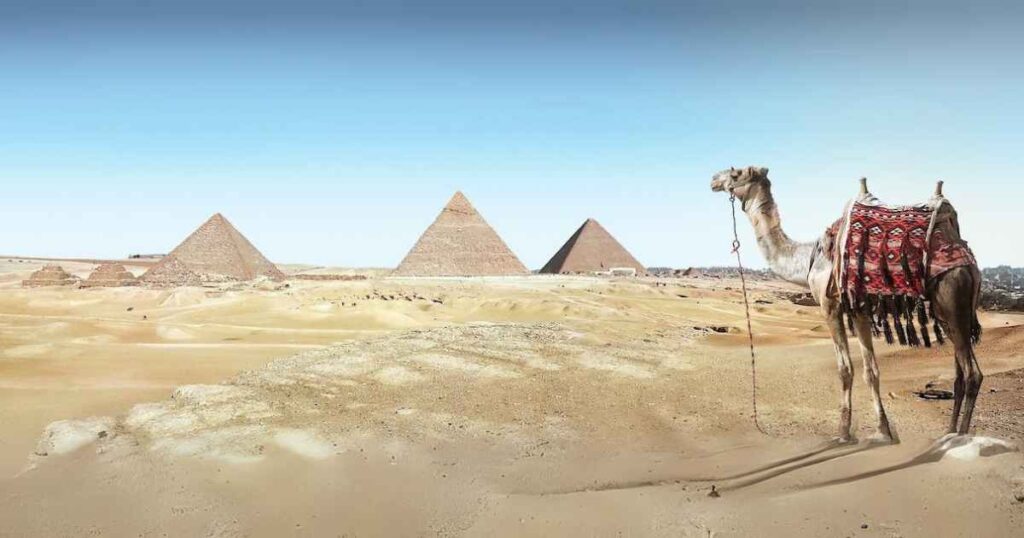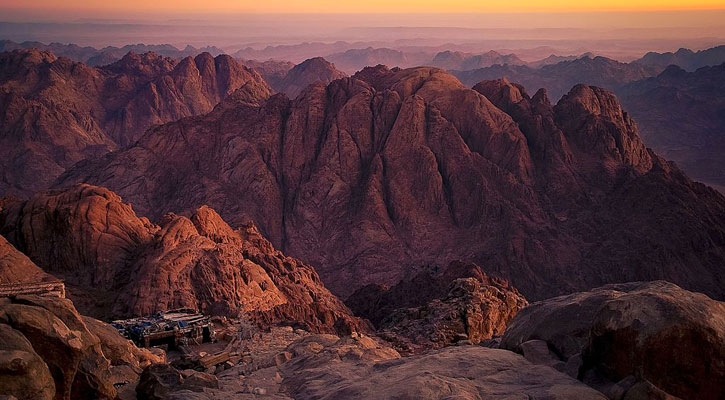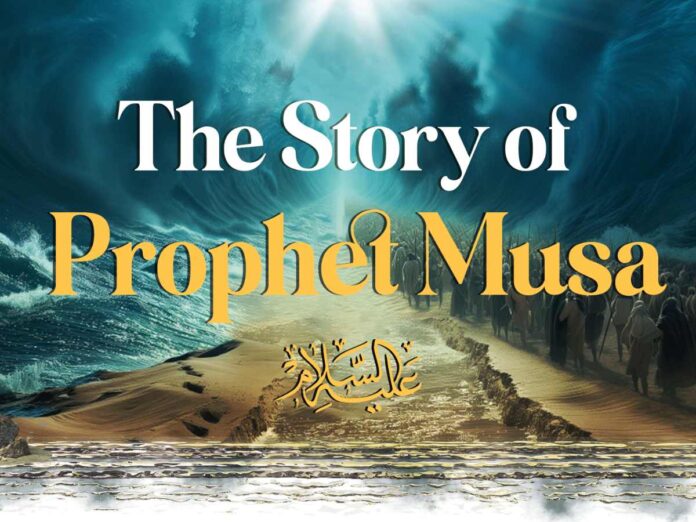Prophet Musa is primarily a Muslim holy site near Jericho in Palestine, where a local Muslim tradition places the tomb of Moses. The compound is centered on a mosque which contains the alleged tomb.
The Quran states that Prophet Musa was sent by God to confront the erstwhile (pharaoh) of ancient Egypt and to guide the Israelites, who were enslaved by the former. The Quran directly validates Musa and Harun as prophets chosen by God: And mention in the Book ˹O Prophet, the story of˺ Moses.

Short Biography of Prophet Musa :
Prophet Musa, known as Moses in English, is one of the most significant prophets in Islam, Christianity, and Judaism. In Islamic tradition, he is regarded as a prophet and messenger of Allah, and he is mentioned more frequently in the Quran than any other prophet. Musa is known for leading the Israelites out of Egypt, where they were enslaved, through the miraculous parting of the Red Sea. This event is known as the Exodus.
Key Points about Prophet Musa:

- Birth and Early Life: Prophet Musa was born in Egypt during a time when the Pharaoh had ordered that all newborn Israelite boys be killed. To save him, his mother placed him in a basket and set it afloat on the Nile River, where he was found and adopted by the Pharaoh’s family.
- Prophethood: Musa received his prophetic mission when he encountered the burning bush on Mount Sinai, where Allah spoke to him directly. He was commanded to confront the Pharaoh and demand the release of the Israelites.
- Miracles: Musa was granted several miracles by Allah, the most famous being the parting of the Red Sea, which allowed the Israelites to escape from Pharaoh’s pursuing army.
- The Ten Commandments: According to Islamic and biblical traditions, Prophet Musa received the Ten Commandments from Allah on Mount Sinai, which are guidelines for righteous living.
- Legacy: Prophet Musa is revered as a leader, lawgiver, and prophet. In the Quran, he is described as a man of strong character and unwavering faith, who faced immense challenges in his mission.
- The 9 signs given to Musa : These clear signs were: his staff, his hand, the years of famine, the sea, the flood, the locusts, the lice, the frogs and the blood. This was the view of Ibn `Abbas. Muhammad bin Ka`b said, “They were his hand and his staff, the five signs mentioned in Al-A`raf, and destruction of wealth and the rock.
In Islam, Musa is considered one of the five greatest prophets, along with Noah, Abraham, Jesus, and Muhammad (peace be upon them all). His life and teachings continue to be an important part of Islamic theology and are often referenced in religious discussions.
Now we discuss about Prophet Musa Story in Quran : The story of Prophet Musa (Moses) is extensively detailed across various chapters (Surahs) in the Quran. Here’s a summary of the key episodes in his life as narrated in different Quranic verses:
1. Birth and Early Life
- Surah Al-Qasas (28:7-13): Allah inspired Musa’s mother to place him in the river, assuring her that he would be returned to her and made a prophet. He was found and adopted by Pharaoh’s wife, Asiya.
2. Musa’s Youth and Flight from Egypt
- Surah Al-Qasas (28:14-21): Musa, now a young man, accidentally kills an Egyptian while defending an Israelite. Fearing for his life, he flees Egypt and heads to Midian.
- Surah Al-Qasas (28:22-28): In Midian, Musa meets the family of Prophet Shu’ayb, marries his daughter, and spends several years there.
3. The Call to Prophethood
- Surah Ta-Ha (20:9-36): Musa encounters the burning bush on Mount Sinai where Allah speaks to him and appoints him as a prophet. He is commanded to confront Pharaoh and is granted miracles as signs of his divine mission.
4. Musa’s Return to Egypt and Confrontation with Pharaoh
- Surah Al-A’raf (7:103-122): Musa and Harun (Aaron) confront Pharaoh, presenting the signs given by Allah, including the turning of Musa’s staff into a serpent and the white hand. Despite these miracles, Pharaoh and his people accuse Musa of sorcery and reject his message.
- Surah Ash-Shu’ara (26:10-67): This Surah provides a detailed account of Musa’s dialogue with Pharaoh, his call to free the Israelites, and the subsequent plagues that befell Egypt when Pharaoh refused.
5. The Exodus
- Surah Ash-Shu’ara (26:63-68): Allah commands Musa to strike the sea with his staff, parting it to create a path for the Israelites to escape. Pharaoh and his army are drowned when they attempt to follow.
- Surah Al-Baqarah (2:50): A brief mention of the parting of the Red Sea and the destruction of Pharaoh’s forces.
6. Revelation of the Torah
- Surah Al-A’raf (7:142-145): After the Exodus, Musa ascends Mount Sinai where he speaks to Allah and receives the Torah, including the Ten Commandments, as guidance for the Israelites.
7. The Golden Calf Incident
- Surah Ta-Ha (20:83-97): While Musa was on Mount Sinai, some Israelites, led by a man named Samiri, created and worshiped a golden calf. Musa returned, rebuked them for their idolatry, and destroyed the calf.
- Surah Al-A’raf (7:148-150): Another account of the Israelites’ transgression with the golden calf and Musa’s anger upon returning.
8. Wandering in the Desert
- Surah Al-Ma’idah (5:20-26): The Israelites refuse to enter the Promised Land due to fear, leading to their punishment of wandering in the desert for 40 years.
- Surah Al-Baqarah (2:57-61): Allah provided manna and quail for the Israelites in the desert, but they complained and were ungrateful, which led to further trials.
9. Final Lessons and Musa’s Death
- Surah Al-Kahf (18:60-82): The story of Musa’s journey with a servant of Allah (identified as Khidr in Islamic tradition), where he learns the wisdom behind Allah’s decisions.
- Surah Al-Mu’min (40:36-37): Pharaoh’s arrogance and disbelief are highlighted, along with the final destruction of his power.
Conclusion:
Prophet Musa’s story in the Quran emphasizes the themes of faith, justice, perseverance, and the consequences of tyranny and disbelief. His life serves as a reminder of Allah’s guidance, the importance of leadership, and the need for patience and trust in divine wisdom. The story is used to teach moral and spiritual lessons, not just for the Israelites, but for all of humanity.
Is Prophet Musa Israeli?
He is one of the most important prophets and messengers of Islam. According to the Quran, Musa was born to an Israelite family.
What are Prophet Musa followers called?
Conversation. Jews follow Prophet Musa(Taurah) Christians follow prophet Isa(Injil), Muslims follow Prophet Mohammed(Quran) the last messenger from almighty Allah, and all of the prophets sent by Allah only.
Where is Nabi Musa buried?
Nabi Musa, or the Tomb of Prophet Moses (pbuh), lies 11 km south of Jericho and 20 km east of Jerusalem in the Judean wilderness. A side road to the right of the main Jerusalem-Jericho road, about 2 km beyond the sign indicating sea level, leads to the site venerated by Muslims as Maqam El-Nabi Musa.
Who is Firon in Islam?
Firaun (or فرعون in Arabic) means Pharaoh, and refers to (in my opinion) this guy: Ramses II, ruler of Egypt between 1279 BC and 1213 BC.

